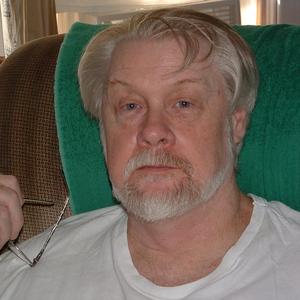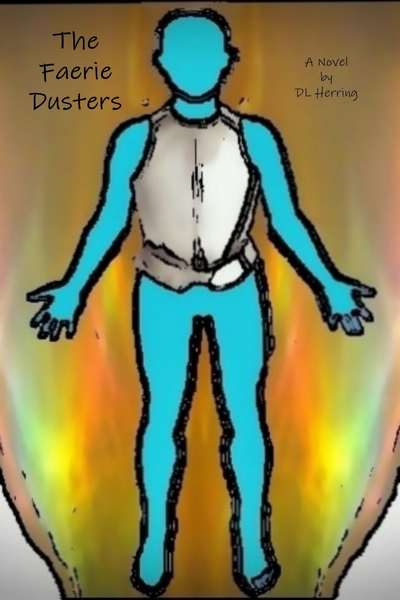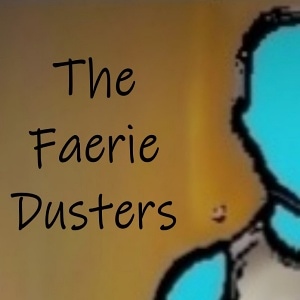“Yes, indeed. Their names for us were our own names but distorted. Because those great monsters were less perfect, they spoke imperfectly. Phar Sheeth thus became Faer Ie, and we became known as the faer ie folk. Folk was the wog equivalent of Shee. Also, Pech Sheeth became Pix Ie.
Now, in those times, great wars were fought between the Shee and the wog. Ever the Shee sought peace and rest, but wherever they did flee, the wog did pursue. They feared and despised the Shee. Therefore, the Maker of all created a special Phar, a hidden Phar that was protected on all sides by mists, rocks, and roiling dew. The name of the Phar was ‘Tir Nan Og’, a combining of the tongues of Shee and Pucha. It meant, literally, ‘land of the ever young.’ In truth, it made light of the shorter lives of the wog.
However, Tir Nan Og was found. The warring resumed. It was decreed, therefore, that Shee and wog should be separated. The wog remained in Dirt. We were given the eight smaller Pharn. Each world is divided into a top and a bottom, both being equal in all respects. When first our clan was put here, back in my father's father's time, we were very many, but the number of Pucha was much less. The arduous building of our Phar commenced with the construction of the Norsey.”
“Was there a Mithal, then?” asked Zamani.
“There was, but the Mithal began as a body of governing heads, each head to speak for his Pharish. Originally, the Mithal was four, not one. A portion of the Phar was allotted to our Peck cousins. This was from the hels to the castle-city, Zhereen. Although our Sheen portions were three, they were not enough. Some of the Shee went to live among the Pucha, and although they attempted to live together harmoniously, the many differences between us was a festering wound. Those of us who lived among them soon surrendered to the Peckish influence and were rejected of all decent Shee. Foremost among the deserters was the villain, Rasha, who proclaimed himself king of Phar Puchal. You wish to speak Zamani?”
“Yes. May I ask you the difference between a Peck and a Sith?”
“Strange request for a Zheren.”
“I remember a Peck from my middays in Norsey, but I’ve not seen one since.”
“How very odd,” said Yagi, stroking his brow. “I’m curious as to what became of them, but no matter, I shall answer your question. Class, do you remember the Peck names?”
As one, the three students recited, “Knockers, and Knickers, Nuggies and Spriggans, Buccas and Gathornes.”
“Very good. Now, to answer your question: those who mined and dug, were they not the Knockers and Knickers? And they who knew the art of unholy machines, were they not the Nuggies and Spriggans? Those of mingled blood, who walked among us as if equal, were they not the Buccas and Gathornes?
While yet in Dirt, certain Shee mingled with the wog - how, I cannot imagine. It has been told that some of their offspring became as large as the wog, with great spikes growing from their heads. Their association with the wog, suffice it to say, left them forever changed. In the relocation to Tir Nan Og, mingled Shee of every description came with us. They brought with them the pernicious practices of man unkind.
Ever have the Shee dwelt in mons; it is the Shee way. The Pucha lived below, in their dark mines. That is how they got their names, for ‘Peck’ means to crawl beneath. Thus we have ‘Peck Sheeth’, or lower Shee. When God removed us to Phar Sheeth, it was said that he would soon destroy the wog. As a covenant sign, He gave us our rainbow skins, to remind us ever that we are his. This is not true with the Pucha. Their gray, lifeless skins are tokens of their kinship to the wog. As with the wog, Pecks are untouched by Phrava. They are uncontrollable and dangerous. Tormented souls they are, troubled with visions in their restless sleep. They call them dreams; your song employed that word. Obviously, it was something you learned in Norsey training.”
“Teller,” Zamani asked, “were all Pecks bad?”
“Some could be civil,” Yagi conceded.
“Do you despise the Pecks?”
“I must confess that I do. I was about your own age when the battle of Mithal-Moun took place. Peck hordes swept down from Zhereen. They murdered my father and mother. No respect for life had they, no mercy.”
“My soul grieves your loss,” said Zamani. “Can you tell me of the battle?”
“I can. Those of the mines, even those of Zhereen, chaffed at the limitation of our Phar. They had drawn plans for the conquest of Dirt. The leader of these malcontents was the evil Rasha. He was young, but he held great power and influence among both Pucha and Shee deserters. His soul was crafty, his mind as sharp as any knife.
His Spriggans devised five machines to be worn upon the body. The power of these metal vests derived from the golen pells which had been brought from Dirt. The wog called them ‘faerie dust.’ For all the mining of the Knockers, golen pells could not be found in Phar Sheeth. Rasha had not enough, but a quantity of the vile substance was stored at Mithal-Moun. Rasha sent emissaries to Ktinmat, then our Mithal Over. Council was called, and the three lesser Mithals were summoned.
Rasha came to Mithal-Moun, bringing five machines, four Spriggans, and his Peck mate, Elimar. Rasha divulged his plan to conquer Dirt. He demonstrated the working of the suits, and finally demanded a share of the golen pells. Ktinmat despised the ungodly machines, and vehemently rejected Rasha's grandiose scheme. He was indignant at Rasha's impudence and denied him access to the store of golen pells. In a rage, Rasha drew iron on the Mithal Over and grievously wounded him. Mithal attendants strove with the Zheren party until Rasha fled.”
Yagi took a breath and sighed as he was drawn into the memory. He continued, “The aids gave chase, but Rasha closed himself within Zhereen's high walls. There, from inaccessible windows, the villain railed and ranted, cursing all the Shee. He swore upon his blood to find and open the Mythic Portal, which he believed was the pathway connecting Phar Sheeth to Dirt. He swore he would loose upon our Phar all the bloodthirsty monsters of Dirt.
A great many middays followed. Emissaries came and went. Bucca spies were found among us. As a protective measure, all Buccas were expelled to Zhereen. Tensions arose; rumors spread of invasion: armies clothed in iron, invincible legions with machines of war. Fears arose about Dirt monsters creeping out from the nholas; we armed ourselves and kept watch. Ragezeg devised the barrier in response to our fears.
He found a way to use one of the machine suits to form an impenetrable, unseen wall around the nhola forest. Two pyre gems send their hidden power through the machine, and along a line of buried metal that encloses both nholas and floater forest. The four remaining machines, as well the golen pells, Ragezeg entrusted to me, charging me to hide them, with all craft and cunning, so that none would ever find them.
War did come. Word arrived of Zhereen opening, of armed legions spilling forth. We raced to stay their hordes; male Shee marched into battle. Those who remained hid in the Norsey. We met their forces upon the hels. We had greater numbers, but they had superior weapons and armor. Of all their weapons, one they had which was truly our bane. With crushing noise, it spat a ball of searing heat, and with it, they forever sealed the mine of the pyre gem.
However, our great press forced them back, and many fell into the abyss. We warred from the stone walls of Mithal-Moun to the black depths at the end of our world. That battle lasted from the beginning of midday to the ending of the same, and much blood was spilled. They met only defeat, but our victory was more than we could bear. Less than half our hundreds returned home, and I survived the battle to the horror of my soul.
A part of their hordes had circled around the far side of the forest. Our mons were razed, and our families were murdered. We came upon them even as they thrust in their blade. Once more, we engaged the enemy and forced their defeat by the coming of night. We had numbered in the hundreds. Now, the Shee are but a few families. After the battle, after the casting, many more left us from sickness and fever. Should it surprise any that I bear the Pucha no goodwill?”
“I did not know. I grieve your loss.”
“Since that hateful day, some forty seasons gone, the Shee have enjoyed peace. If there are any of the Pucha left, They are behind the walls of your Zhereen or locked in the mines. Gone they are, and good riddance. Forgive the weight of my voice; I do not hurl defamations broadcast. Aside from yourself, the last to open the doors of Zhereen were emissaries, some seventeen seasons past. I prize the peace of my people.”
Zamani spoke quickly, lest the Teller's heart be overburdened with sorrow. “I have learned much,” he said. “What I thought I knew, as right, was wrong. Will you tell me of the hiding?”
“I will not. That must remain my secret. Those vile machines must never be found, for I believe in my soul, as does our Mithal, that should those evil things again see light, our Phar will cease to be.”
“I truly meant no harm,” Zamani assuaged. “I was curious. Will you tell me another matter, then? You used the word ‘myth’ as if a thing untrue is believed. I wish to hear more.”
Yagi smiled comfortably. He answered, “Myths are beliefs that aren’t true. They are the product of being unattached with one's mind. It was once believed, for example, that flynt could be found in the nholas. Now we are sure, as with golen pells, that flynt may only be found in Dirt.”
Zamani caught the sly grin that flashed across Xarhn's pretty face. It was there but for an instant, and then was gone. He asked the Teller, “Are nhola creatures myth, or truly from Dirt?”
“Quite real,” Yagi replied. “The portal has been opened.”
Zamani prompted, “The Mythic Portal is no myth, then.”
Yagi responded, “Understanding can travel in two directions.” He made a vague gesture above his head and continued, “In this instance, many believed the portal to be no more than a story told at revel time. Thus, came the portal to be called mythic.”
“Could a wog find its way into our Phar?” asked Zamani, wringing a gasp of horror from the class.
“I think not,” said Yagi. “Wog are much too big. Wherever in the nholas the portal may be, I believe that only small creatures may pass through it.”
Zamani leaned forward in genuine interest. “If I may press you further,” he asked, “how big are wog, exactly?”
“Very big,” said Yagi, thoughtfully stroking his chins. “When they stood, the mists of their sky could be hidden by their great, thick heads. Imagine seven Shee, each your own height. The first will take the second upon his shoulders; the second will take the third, the third the fourth, and so on until the seventh stands on top. Does that give you an idea of their size?”
“They would be very tall. Do you think the Maker really destroyed them?”
The Teller answered cautiously, “I cannot say with certainty. Although the Maker of all swore that he would soon destroy them, and that was in our distant past, his table of time is not like ours. Whether He did or did not, who can say? I will tell you this - Rasha claimed to have transported himself to Dirt, and there saw wog.”
Zamani pursued a new thought, asking, “Did Rasha leave us in battle?”
“It was reported that Rasha escaped,” sighed the Teller, “but, not before losing his right thumb to Ragezeg's iron.”
“Ragezeg,” Zamani repeated slowly. “The new Mithal?”
“Yes. Ragezeg, the son of Ktinmat, hated Rasha, the self-proclaimed king, for wounding his father. During the battle, Ragezeg pursued Rasha into the hels, where below the four stones, he took his thumb in close combat. To this very midday, Ragezeg keeps that thumb in his chamber at Mithal-Moun.”
Zamani had been in Ragezeg's chamber, but he had never seen a thumb. He wished to continue this most interesting discourse, so he asked, “What are the hels, and the four stones?”
“Wherever the Peck has gone,” said Yagi, “there have been hels. Hels are the belly of a mine, which are dumped some distance from the mouth of their burrow. At the center of the hels, one may find an erection of four large stones. It is a practice borrowed from the wog religion of groves. It is to the stones that Pucha resort to worship their works, and themselves.”
“Shee worship the Maker of all,” injected Voytk.
Being suddenly wrenched from conversation with Zamani, and reminded of his class, he asked them, “And how do we worship the Maker of all?”
The class intoned with a single voice, “With pure souls, and open hands.”
Yagi returned his attention to Zamani with a satisfied nod. He continued, “The Pucha had a song they sang at the hels. The words were these:
Make the hels. Make the hels,
Knocking for our lovely pells,
Rake the ore. Burrow, bore,
Silent slate and dozey door.
Raise the stone. Shadow stone,
Low the toil but ours alone.
Knick the dunn. Four to one,
Three will find our happy home.
High the Peck. High and great,
Warm the dunny low and late.
Dance the ring. Praise and sing,
Blessing stones will blessings bring.
Seal the home. Lost and gone,
Raise again the shadow stone.
Make the hels. Make the hels,
Knocking for our lovely pells.”
Yagi took a deep breath and concluded, “Monotonous words from monotonous minds.”
Zamani was full. He had too much spinning through his head. He smiled grandly at the Teller and said, “I could drink of this dew and never tire, but I will trouble you with no more questions. You have given much, and I do thank you.”
“I have enjoyed your questions,” replied the Teller. “A bright, seeking mind is no trouble to me, young Zamani. Mayhap you will honor me with your questions another midday.”
The small class had been reverently enthralled by the exchange between their Teller, and the stranger from Zhereen. It was as if a breath, collectively held, had been suddenly exhaled. They blinked their wide, black eyes and began to move again. Yagi, too, flexed and rubbed the small of his back. With two smart claps of his pudgy old hands, he brought attention back to class business.
“Class,” he said, “this midday has been a treat for all. We’ve added to our strength of dance, we’ve taken important first steps in song, and we’ve witnessed the bright mind of one who searches truth. Soon, we will end our class in a procession of vestments, but before we do, I remind all that with our next class we will resume our language and writing arts. Bring your slates.
Now, we will display, in our costumes, originality. As I said, they need not be work or ceremonial; they may be as practical or ridiculous as you like. We shall learn from our own efforts and those of our classmates, but in all events, we shall have fun. Voytk and Tosh will begin. Please uncover the pyre gem, and close the door behind you. Now, be quick.”











Comments (0)
See all